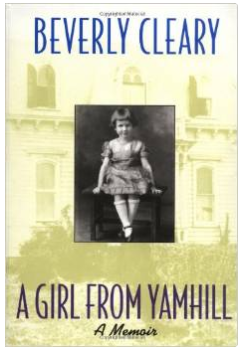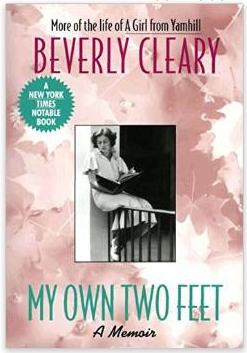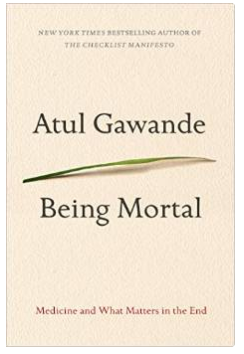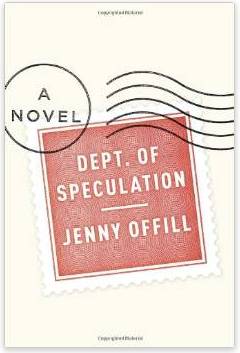Miss Grace recommended Beverly Cleary’s memoirs A Girl from Yamhill and My Own Two Feet.
I wasn’t sure I’d be interested in books about Beverly Cleary, but it turned out I was. I liked the first book more than the second, but I liked both.
I did get a little tired of how hard she was on her mom. Her mom did a fair number of things that merited criticism, but it seemed like the feeling of “as do we all” was lacking. After awhile it felt as if the mom couldn’t win: she even got criticized for her basic temperament type (different than the one her daughter would have preferred in a mother), and for what her daughter THOUGHT she MIGHT be THINKING. Meanwhile, the dad didn’t seem to get his fair share of the criticism, and HE got CREDIT for what his daughter thought he might be thinking.
But MOSTLY, I loved it. It won’t sound exciting if I describe it (she grew up, she went to school, she got a job, she got married), but it’s the telling style that makes it good. I hadn’t thought much of Beverly Cleary since outgrowing the Ramona stage myself, but after reading her memoirs I love her. So I recommend trying them, if you like memoirs.
My mom has strongly recommended books by Atul Gawande to me, but I tried one and got about four pages in before being so grossed out I realized there was no way I was going to make it. Being Mortal: Medicine and What Matters in the End looked less surgical, so I tried it.
It’s a book about end-of-life stages, getting elderly, and dying. Sometimes it would make me too sad/stressed and I’d need to put it down and take a little break. But overall, I’d say I felt happier and better after finishing it. It IS sad to realize we’re all going to die, and that a lot of us are going to get increasingly infirm on our way there, but reading more on the topic reminded me of writing our will: the process was sad, but the result was happy.
I felt like I ended up with a better grip on old age and death being TRUE NORMAL THINGS as opposed to pitfalls I hoped everyone I loved would avoid altogether. I also felt more aware of some of the options that can improve things (for when my parents go through it, and for when Paul and I do), and I thought his overall concept of “how to decide how heroic to get” was a good and thought-provoking one. I found his matter-of-fact, friendly, calm writing voice very helpful: he seemed realistic/knowledgeable but human/normal. I would recommend trying it. I’ve heard it’s very good exercise for an aging brain to read non-fiction! Plus, I ended up feeling very motivated to eat vegetables.
I read Dept. of Speculation after reading a review on Shelf Love. I thought from the review it might be too dreamy/contractionless for me, but no, I loved it, the kind of love where I want to be friends with the author now. Quotes from a book never quite capture the feeling of reading them IN THE BOOK, but I want to give you a sample anyway. She describes her husband reporting all the little household repairs he’s done, and she says to us:
This is another way in which he is an admirable person. If he notices something is broken, he will try to fix it. He won’t just think about how unbearable it is that things keep breaking, that you can never f**king outrun entropy.
Or another:
Sometimes at night I conduct interviews with myself.
What do you want?
I don’t know.What do you want?
I don’t know.What seems to be the problem?
Just leave me alone.
I basically BARKED with laughter and recognition. It reminded me of books by Suzanne Finnamore.
********
I suddenly remembered that I used to do book posts where at the end I’d do a giveaway for one of the books. Let’s do that again, that was fun. You can leave a comment NOT entering the giveaway, if you want (sometimes that’s what I want), but if you do want to enter, you can do so by saying which book you’d want to win. I’ll choose someone on Friday the 13th. U.S. addresses only, but if you know someone with a U.S. address you can have the book shipped to them as a little giftie.
Update! The winner is Diane, who commented:
Oh fun! I added Dept of Speculation to my library holds immediately upon reading this post, so winning it would be fantastic.
Your criticism of the Beverly Cleary books makes me afraid to read them. It’s one of the things I find most difficult to deal with in real people: assuming people have specific thoughts or intent and then acting as though the assumption is FACT. No stop that right now.
Yes, me too—and I think I overstated my complaint about that issue in the Beverly Cleary books. It wasn’t that bad/frequent; it’s more that it’s the only negative thing that caught my attention!
I’ll email you, Diane!



